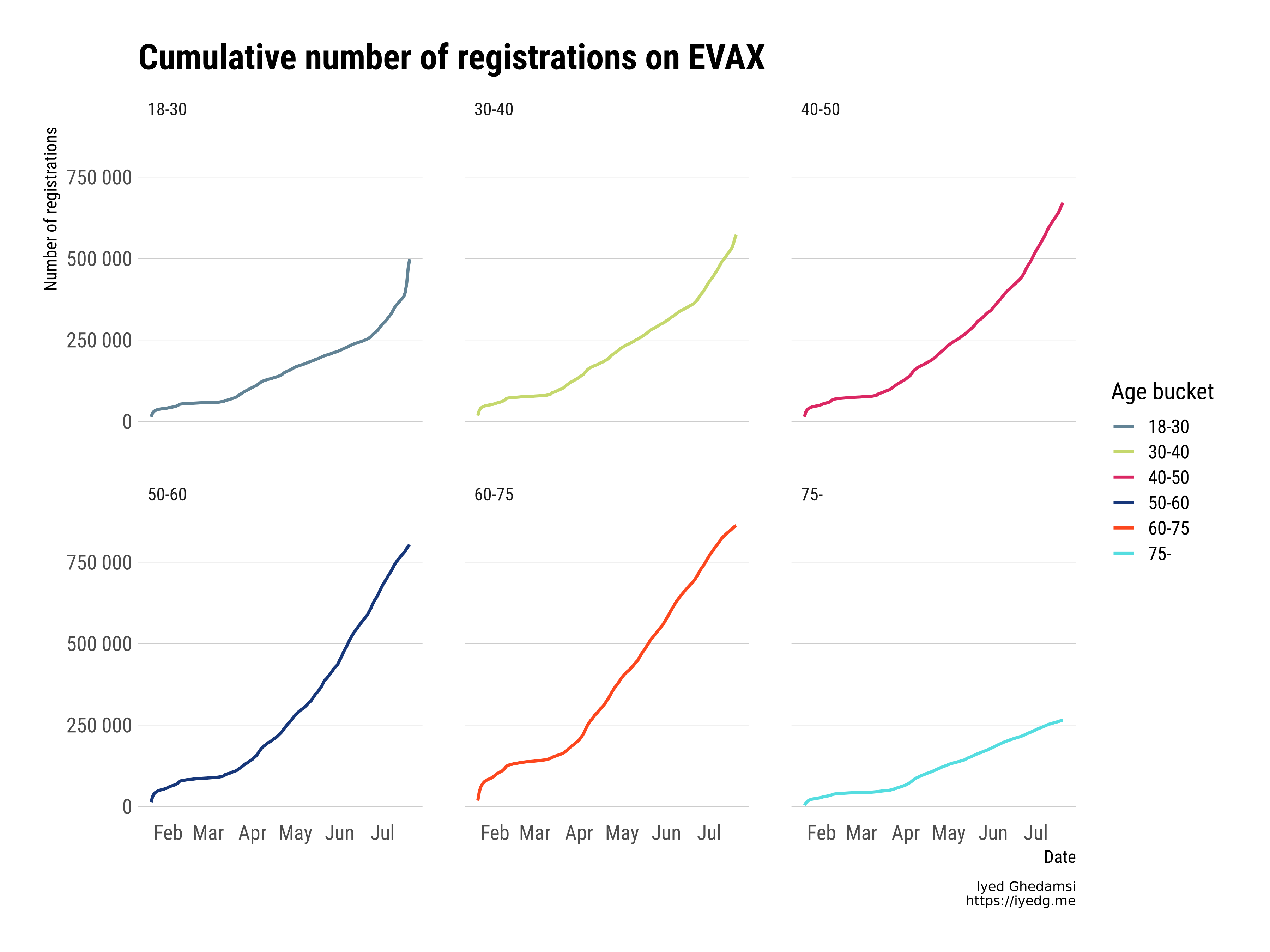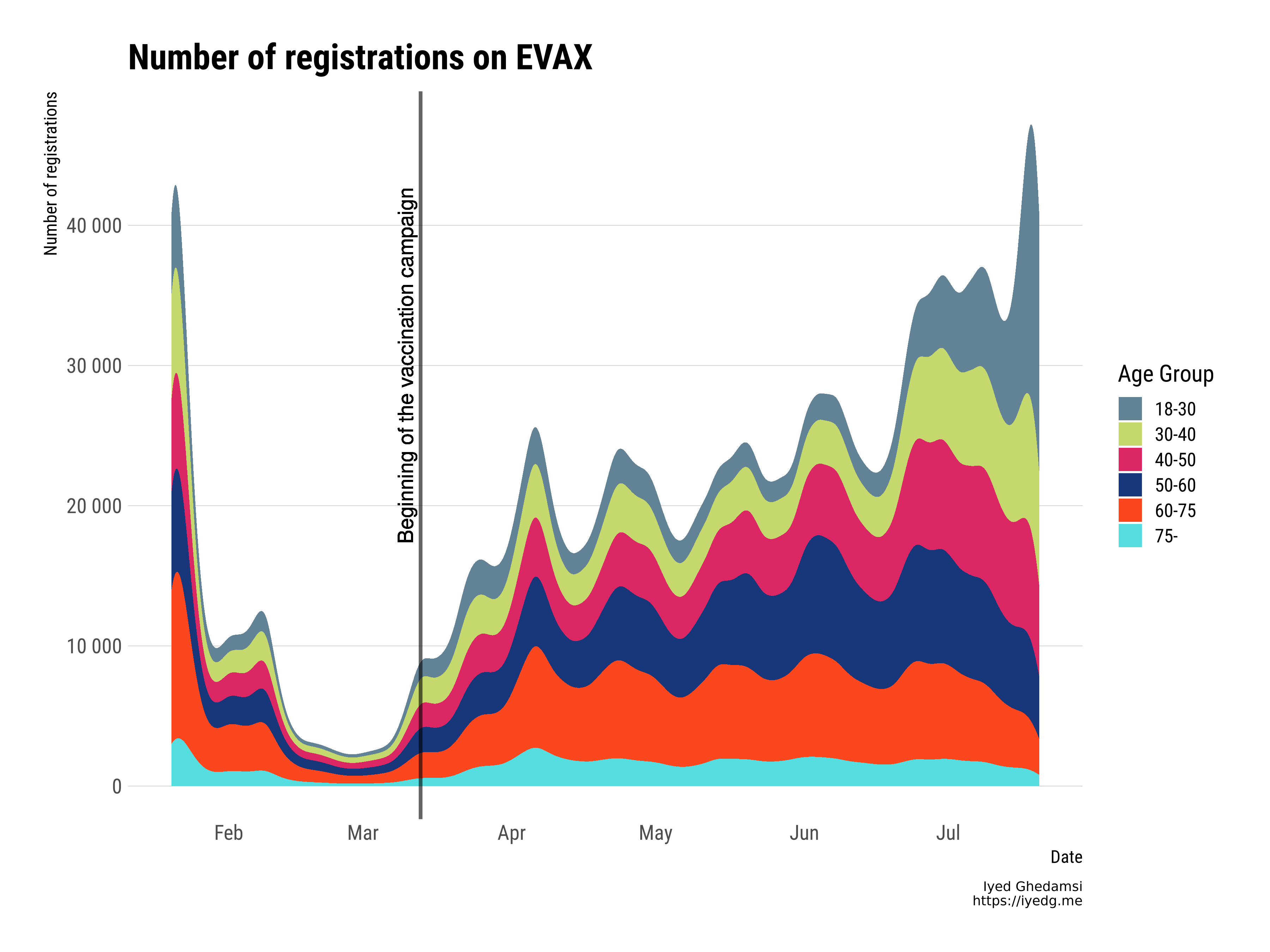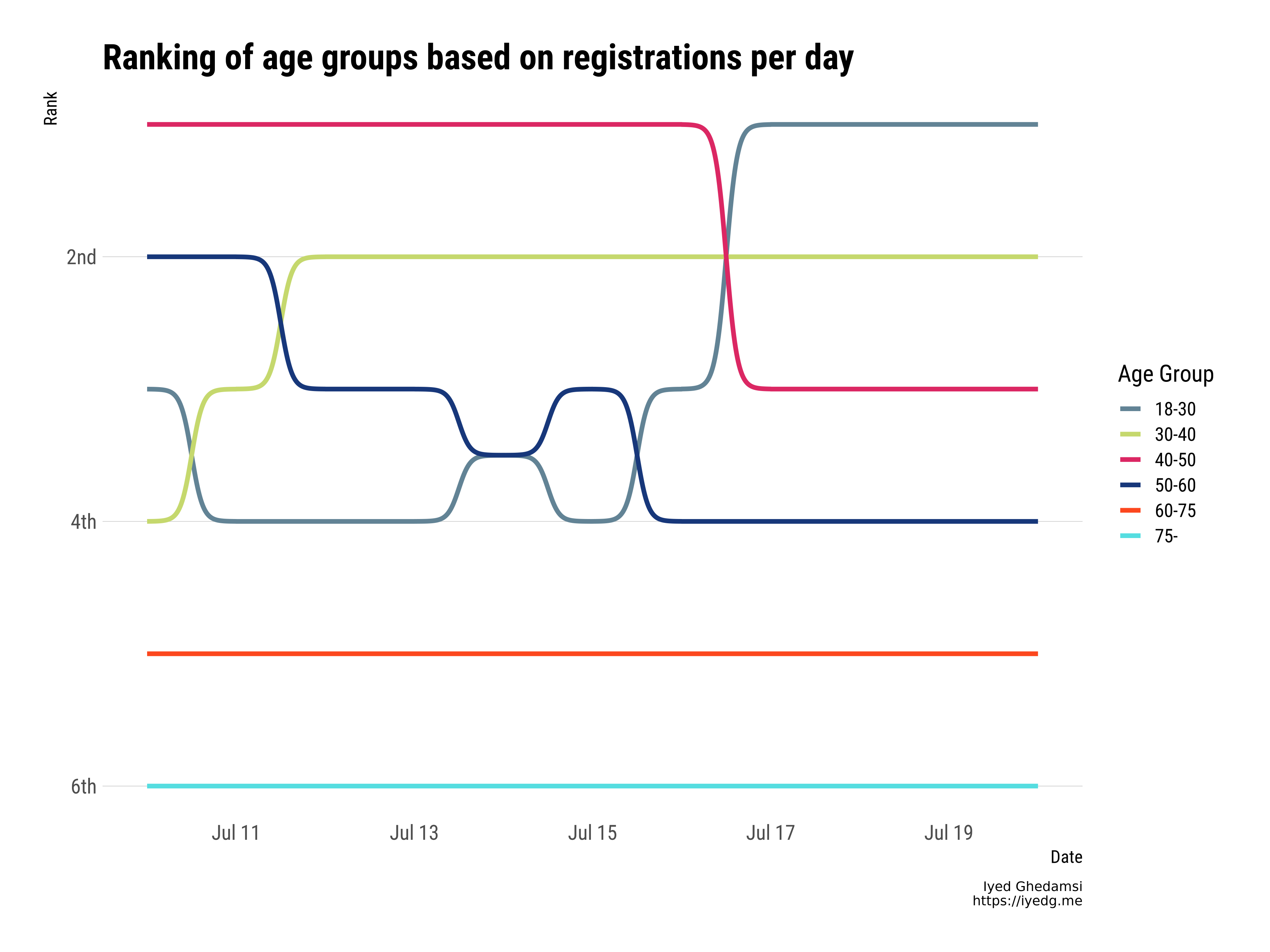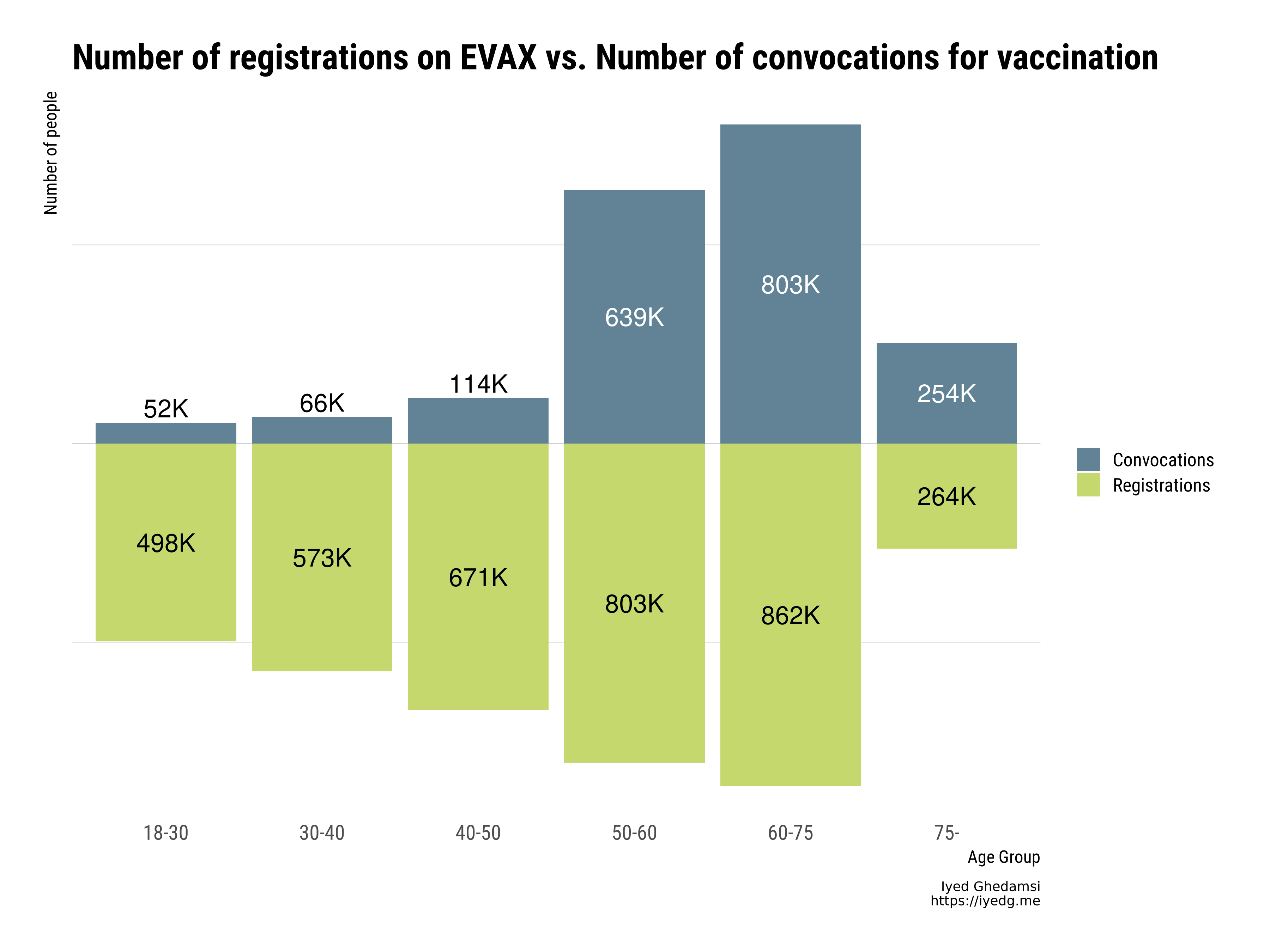The vaccination campaign in Tunisia: a blameless crime ?
By Iyed Ghedamsi
July 21, 2021
Disclaimer I: The data used throughout this piece has been scraped from the ‘open data’ section of EVAX. It is very possible that I made a mistake collecting / interpreting the data given that It was collected in non-traditional ways. The code I used is available in the end of the article, please check it for yourself .
Disclaimer II: This is an opinion article despite it having graphs and numbers. It should not be taken as nothing more than a random stranger’s opinion on the internet.
Introduction
Assigning responsibilities in the case of the mismanagements of a public health crisis is nothing but a basic expectation from democratically elected officials. But what if citizens are the culprits ? So we are told. In this short exploration, I go through one aspect of the efforts against the COVID-19 pandemic in Tunisia: the registration for vaccinations.
Citizen awareness: the tale of a scapegoat

Looking at the two plots above outlining the number of registrations on the official platform EVAX, an upwards trend in the population and across all age groups is clear. Although some groups have higher registration rates such as ages 50-60 and 60-70, the other groups do show an accelerated registration rate starting from June, most notably the 18-30 group. Based solely on these observations one might be tempted to question the dominant narrative that Tunisians do not want to get vaccinated. Yet a rephrasing of the of this blame pushes us to further analysis: Are Tunisians registering fast enough ?
Enter: The dip

A first observation to make from the graph above is the peculiar dip in the number of registrations for the vaccinations by the end of January. Yet looking at how the trend is reversed right after the beginning of the vaccination campaign, it seems to me that an explanation, and an answer, arise. With 52 days between the launch of EVAX and the first day of the vaccination campaign, registration efforts were bound to fizzle out with no immediate or foreseeable outcome in sight. More importantly, a variety of phenomena can explain the registration rate of Tunisians following the beginning of the vaccination campaign. Firstly, the economic crisis and the inconsistent signals provided by the government regarding their ability to purchase the necessary vaccine quantities are certainly a hindrance for any effort to onboard people on EVAX. Secondly, a notable failure of the COVID-19 national strategy was the lack of communication on the safety of the vaccines. The void left by this absence left room for a variety of rumors and misinformation / disinformation to plague the public discourse about vaccines.
The crestfallen bunch
Right before Eid al-Adha, a Facebook post on the Health ministry’s page announced Vaccination Open Days on the 19th of July, at 3:21 PM, for anyone older than 18. The announcement caused a lot of confusion and excitement. A registration frenzy ensued: 45 566 people between the ages 18 and 30 registered on the 19th. That’s 17 211 more registrations than the next day with the most registrations for that age group. The interest of the young groups, however, precedes this event. The graph below shows that the 30-40 had climbed two positions to become the second most registering age group by the 12th of July. As well as the 18-30 group that became the highest ranking group on the 16th of July. Thus dispelling the last drop of doubt that Tunisians are ‘unaware’ of the importance of vaccinations. Instead, what Tunisians needed was .. vaccines.
Crestfallen : disappointed and sad because of having failed unexpectedly. – Cambridge Dictionary

The disappointment followed the Eid al-Adha’s episode is one to be remembered, hopefully long enough to punish those responsible. A simple look at the data readily available on EVAX would have made is sufficiently clear that calling upon every Tunisian old enough to be vaccinated within two days was an exercise in stupidity and tomfoolery. With the absence of common sense that is.
The road ahead:

It goes without saying that engaging in an honest an thorough analysis of the bottlenecks slowing down the vaccination process is a must. Between the over-worked and understaffed health workers and the saturation of the whole health system of the country, clear measures must be taken to firstly curb the spread of the virus and to efficiently vaccinate the remainder of the population.
Relying on the ‘citizen’s awareness’ has become a meme that simultaneously denigrates any civilised behaviour from Tunisians and branding them as de facto savages until they prove otherwise, and a representation of a weak political class that can do nothing but serve the rich and blame the poor. I say, citizens are aware, as aware as their material conditions allow them to be.